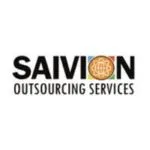
Top Real Estate Web Design Companies
Looking for the best Real Estate Web Design Companies to bring your property business online? Our curated list features top-rated web design companies specializing in real estate websites. Whether you’re a realtor, agency, or developer, these experts offer tailored solutions to showcase listings, integrate MLS/IDX, and deliver a seamless user experience. With verified reviews, portfolio highlights, and service breakdowns, this page helps you compare and choose the ideal partner for your project. From responsive design to lead generation features, find a company that matches your goals and budget. Start exploring and select the best real estate website designer for your needs today
List of the Best Real Estate Website Designers | Top Real Estate Web Design Companies in the World

-
Employees: 11 to 50
-
Min. Project amount: $10,000
-
Country: NY, USA

Cyber Nest
-
Employees: 11 to 50
-
Min. Project amount: $25-$49/hr
-
Country: NY, United States
-
Employees: 101 to 250
-
Min. Project amount: $10000
-
Country: Karnataka, India
-
Employees: 11 to 50
-
Min. Project amount: $1,000+
-
Country: Singapore

Telepathy Infotech
-
Employees: 51 to 100
-
Min. Project amount: $5,000+
-
Country: Casper, WY

Onex Software
-
Employees: 11 to 50
-
Min. Project amount: $10,000+
-
Country: İzmir, Türkiye

Saivion India
-
Employees: 11 to 50
-
Min. Project amount: $1,000+
-
Country: New Delhi, INDIA

SAT Microsystems
-
Employees: 251 to 500
-
Min. Project amount: $250,000+
-
Country: Jeddah, Saudi Arabia

Elite M Commerce
-
Employees: 101-250
-
Min. Project amount: Undisclosed
-
Country: NJ, United States

Ecom Buzz
-
Employees: 0 to 10
-
Min. Project amount: $1,000+
-
Country: Kolkata, India
1.What Should I Look for in a Real Estate Website Design Company?
Choosing the right real estate website design company is crucial for building a professional, high-performing platform that attracts buyers, sellers, and investors. Here are the key factors to consider:
1. Industry Experience
Look for agencies that specialize in real estate or have a strong portfolio in the industry. Familiarity with real estate trends, buyer behavior, and listing features is essential.
2. MLS/IDX Integration
Ensure the company offers seamless integration with MLS (Multiple Listing Service) and IDX (Internet Data Exchange) to display live property listings directly on your website.
3. Responsive, Mobile-Friendly Design
With most users browsing on mobile devices, your website must be responsive. A mobile-optimized design ensures a smooth experience across all devices.
4. SEO and Digital Marketing Expertise
The company should understand real estate SEO to help your site rank on search engines. Ask about local SEO strategies, on-page optimization, and blog integration.
5. Lead Capture and Conversion Tools
Features like contact forms, chatbots, CTAs, and lead magnets are critical. Your site should convert visitors into leads with minimal friction.
6. Client Reviews and Case Studies
Check client testimonials, reviews, and past case studies. A reputable agency will be transparent about results and customer satisfaction.
7. Ongoing Support and Scalability
Post-launch support for updates, maintenance, and growth is vital. Choose a company that offers scalable solutions as your real estate business expands.
2.How Much Does It Cost to Build a Real Estate Website?
The cost of building a real estate website can vary greatly based on your specific needs, design preferences, and feature requirements. Below is a breakdown of what impacts pricing:
1. Basic Website ($2,000 – $5,000)
A simple, brochure-style website with a few static pages, basic property listings, and contact forms. Ideal for small agencies or individual realtors just getting started.
2. Mid-Range Website ($5,000 – $10,000)
Includes more robust features like MLS/IDX integration, responsive design, custom branding, lead capture tools, and limited CRM functionalities.
3. Advanced Website ($10,000 – $20,000+)
Custom-built platforms with advanced property search filters, CRM and third-party tool integration, interactive maps, blog sections, virtual tour capability, and tailored UX/UI design.
4. Additional Costs
Hosting & Maintenance: $20–$100/month
SEO & Marketing: Varies by scope
Custom Content or Copywriting: May be billed separately
Ongoing Updates & Support: Often available as part of a monthly package
Investing in the right features can help maximize user engagement and drive more qualified leads for your real estate business..
3.How Long Does It Take to Design a Real Estate Website?
The timeline for designing and launching a real estate website can vary depending on the scope, features, and client responsiveness. Here’s a general breakdown:
1. Basic Website (4–6 Weeks)
If you’re building a simple website with limited features and minimal customization, it may take around 4 to 6 weeks. This includes initial planning, content setup, basic design, and testing.
2. Moderate Website (6–8 Weeks)
For websites with custom design elements, MLS/IDX integration, and lead capture tools, expect a timeline of 6 to 8 weeks. This allows for design approval, revisions, and proper feature implementation.
3. Advanced Website (8–12+ Weeks)
Highly customized real estate websites with complex search filters, CRM integration, virtual tours, and mobile-first design could take 8 to 12 weeks or more. This includes extra time for feature testing and user experience optimization.
4. Factors That Affect Timeline
Client Feedback & Approvals
Content Availability (Images, Listings, Copy)
Number of Revisions Required
Third-Party Integrations (e.g., CRM, IDX)
Proper planning and clear communication with your design agency can help ensure a smooth and timely launch.
4.Do Real Estate Web Design Companies Offer MLS or IDX Integration?
Yes, most reputable real estate website design companies offer MLS (Multiple Listing Service) or IDX (Internet Data Exchange) integration as a core feature of their services. Here’s what to expect:
1. Automated Property Listings
With MLS/IDX integration, your website can automatically pull property listings from your regional MLS database. This ensures that your listings are always up to date without requiring manual input.
2. Real-Time Updates
Top agencies implement real-time syncing, so any changes made on the MLS (new listings, price updates, sold properties) are immediately reflected on your website.
3. Advanced Search Functionality
MLS/IDX tools enhance the user experience by allowing visitors to filter searches by price, location, property type, and other features—just like large real estate portals.
4. Lead Generation & Capture
Many IDX solutions are designed to collect user data through saved searches, registration prompts, and contact forms—helping you turn visitors into potential clients.
5. Mobile-Optimized Display
Integrated listings are typically mobile-friendly, ensuring your website delivers a seamless property search experience across devices.
When choosing a design company, always confirm they have experience with your regional MLS and can customize IDX features to suit your business goals.





